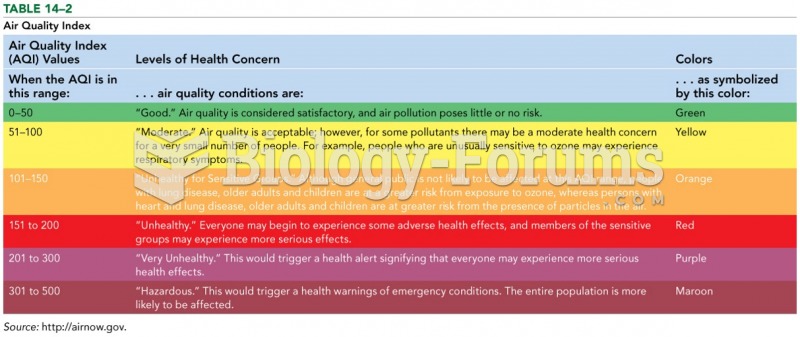|
|
|
Nearly 31 million adults in America have a total cholesterol level that is more than 240 mg per dL.
In 1885, the Lloyd Manufacturing Company of Albany, New York, promoted and sold "Cocaine Toothache Drops" at 15 cents per bottle! In 1914, the Harrison Narcotic Act brought the sale and distribution of this drug under federal control.
The first oncogene was discovered in 1970 and was termed SRC (pronounced "SARK").
Adolescents often feel clumsy during puberty because during this time of development, their hands and feet grow faster than their arms and legs do. The body is therefore out of proportion. One out of five adolescents actually experiences growing pains during this period.
There are over 65,000 known species of protozoa. About 10,000 species are parasitic.







